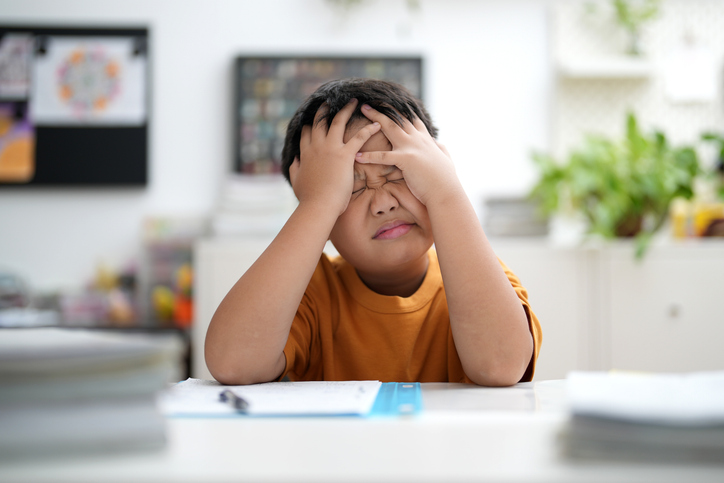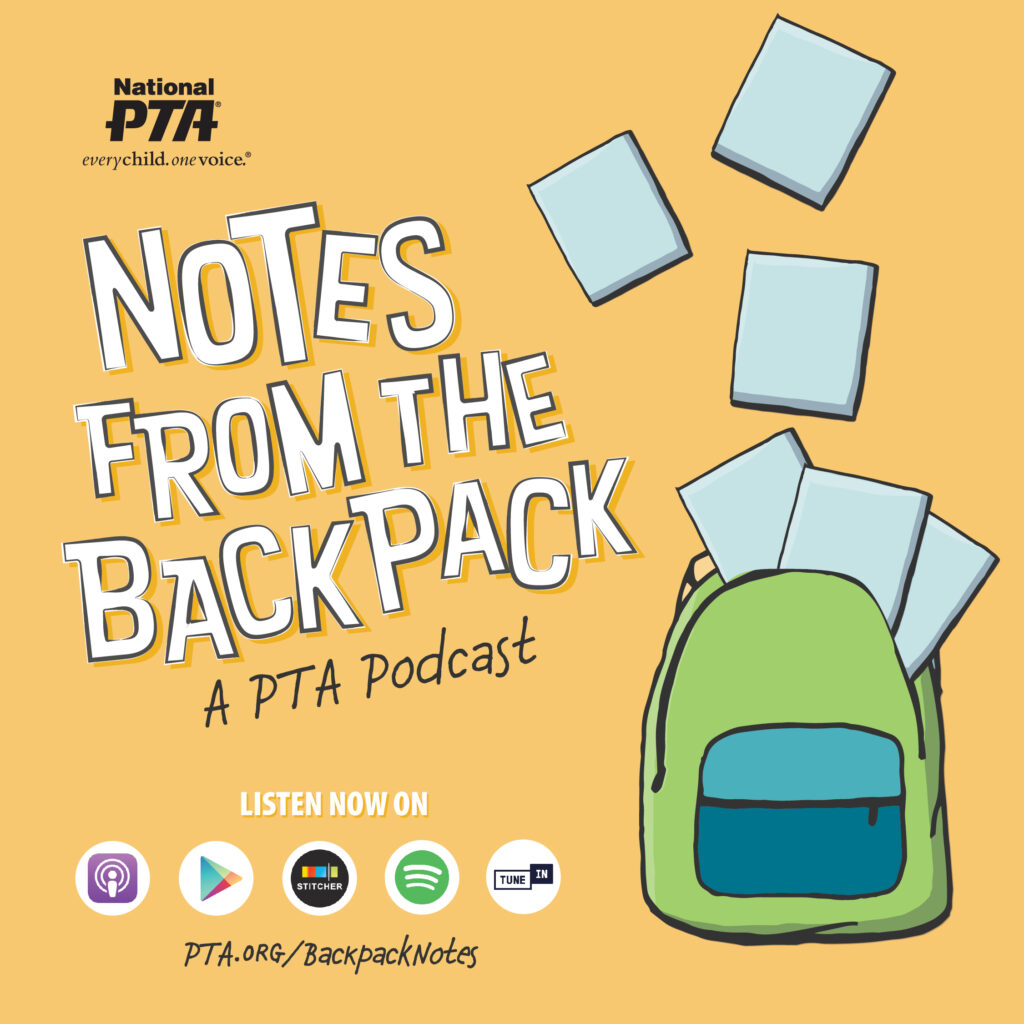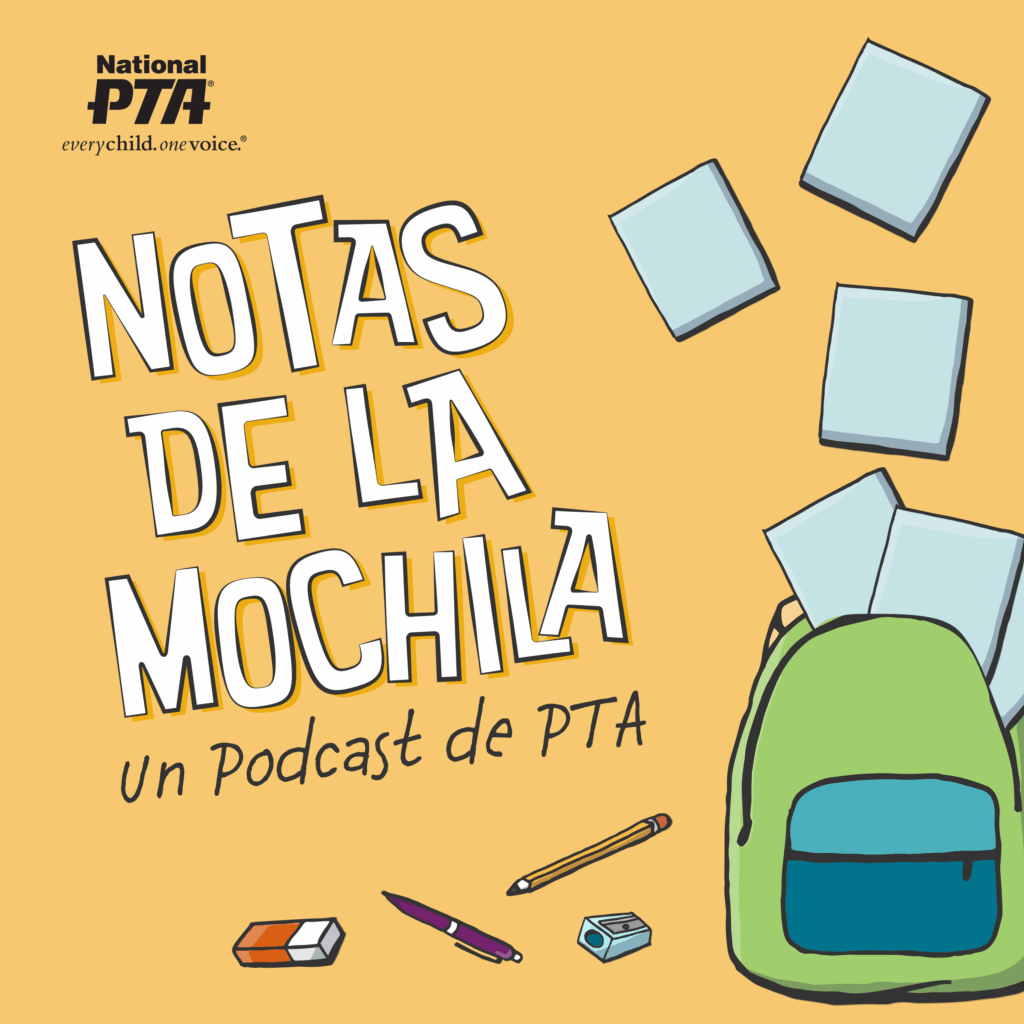While math comes naturally to some students, many others struggle with the subject. The 2023 Trends In International Mathematics and Science study found that U.S. students in 4th to 8th grade are falling behind in math and science, with 87 percent scoring below the lowest benchmark.
While it’s common for parents to pass their math anxiety down to their kids, there are ways to break this cycle, like talking to your kids about their problem-solving skills. But there are other options, too. National PTA sat down with Eugenio Longoria Sáenz, founding director of the Center for Family Math at the National Association for Family School and Community Engagement (NAFSCE), to discuss ways to empower and support your kids as they learn.
National PTA: Can you start by telling us about your own math journey, how you feel about math and how it led to the role you’re in today?
Eugenio Longoria Sáenz: What led to this role is that very question. I began to ponder the idea of my math journey line, and what was interesting to me is I only went as far as third grade. I remember our teacher would do these drills: She would separate the class into two or three groups, and she would yell out things like the multiplication table for five. A representative from each group would run up to the board and literally start to draw out—five times zero; zero. Five times one; one. And so on, until they hit five times 12.
So it was like this math multiplication table relay race. That memory, obviously, as I’m describing it, is very, very vivid. I moved on into algebra one, but at the junior high level. I could not participate in algebra one in middle school because my reading scores were under the state standard benchmark for approval to participate in algebra before ninth grade. I scored at the 83 percentile nationally on these standardized tests for reading, and the cutoff was 85 percent. I was an English language learner, so I think that was pretty good for an English language learner, but nonetheless, I had to wait till ninth grade to take algebra one. And when I did I was quite good at it. But I began to question why memories of math were absent earlier in my life. Before third grade, the earliest memory of math that I have was my mother singing [counting] lullabies to my younger siblings.
[It was] a diminishing experience in that I was told I wasn’t smart enough to achieve at math in middle school—or at least achieve in algebra one in middle school—then realizing I was quite strong in algebra once I entered high school. But the second part of why I’m in this role is that I really wanted to explore how children viewed math in the world. As part of this process, I posed the question to friends who had children under the age of five. I asked them to ask their children how tall giants were, and to record and send me these little clips of their children telling us how tall giants were. Part of me [expected] children to say, they’re six feet tall, or they’re 30 feet tall. In the responses I received, not a single child spoke about the height of giants in numerical forms. They were very abstract descriptions of size. I began to also understand, or relearn, that math at early ages is very abstract. Once we mature, we become much more concrete in our relationship with math.
National PTA: Why do you think so many adults are so anxious about math?
Longoria Sáenz: Going back to that third grade memory: The relay race that I remember, obviously there’s a winner and a loser. This young boy obviously lost—I still remember his name, but I won’t say it—and he starts to cry out of frustration. Everybody in the class is just looking at him, [and he] doesn’t know how to react. So the teacher says, ‘Okay, everybody go back. We’re gonna try one more time.’ The same three kids run back up to the board and he loses again, which I think made that situation even more stressful.
I think one of the reasons there is anxiety around math is that in schools, math becomes very performative. It becomes a competitive thing. It also becomes very binary. There’s no, ‘you’re an okay student.’ You’re good or you’re bad; there’s no conversation in the middle. Part of that is because we walk away from the abstract experience we have with math as young children, and then in our everyday life. So when it becomes performative in that way, we start to build anxiety around it.
There’s shame associated with math as well. As we transition from teens in high school into parents later on in life, in many cases, that lived experience of math continues to be within us. When we’re asked to be math educators to our children, to support them in their own development, I think that math anxiety creeps up.
It is not parents’ math knowledge that impacts their own children’s achievement in math. It’s the parents’ math anxiety. If we can mask that anxiety and just be supportive of our children and our students, then they’re much more likely to succeed in math.
National PTA: What do you recommend parents not do with math? How [can] they put that math anxiety or those negative experiences aside, and really try to encourage their children to approach math with a positive lens?
Longoria Sáenz: In asking that question, you surfaced an experience I left out in my math journey line, which is my mom trying to teach me fractions. It’s very vivid and I’ll use this anecdote to address your question: It was extremely positive to have my mother involved in my education, but in hindsight, it’s also a little bittersweet or actually, quite sad. At this point I’m in fifth or sixth grade, and obviously she learned these math processes in Mexico, which is where my family is from, in a particular way. And [teachers] were teaching me how to do [math] in a different way in the United States.
In school, I was looking at a particular set of examples. My mom was relying on her education to provide that support at home. And those two things were worlds apart, quite literally—culturally worlds apart. So it created a lot of tension, and obviously I needed her help. She was the only one there to help me. My dad was working, and I’m also competing against seven other siblings for attention or some support. So there were a lot of knocks on my head. I remember in fifth grade where she was like, ‘Don’t you get it?’ and I’m like, ‘Oh Mom, I’m sorry. I don’t.’ So math was painful, both emotionally and physically.
In the bigger picture, it was the end of my mother’s involvement in my math education in that formal sense. I’ll sort of dive into this later, because there’s a whole world of math we are forgetting when we talk about math, which is that math is all around us. But in terms of your question, it’s not just what parents can do, but it’s also what schools can do to support parents in the education of their children around math.
National PTA: Can you tell us more about that? What can schools do to better prepare families to engage in math activities with their kids?
Longoria Sáenz: One of those things is to invite families to the school, to observe how math is being taught. If my mom had that opportunity, she would’ve realized that math was being taught differently than how she learned it. Maybe she wouldn’t have relearned math, but maybe she would’ve had a little bit more patience and I would’ve gotten less knocks on the head.
If schools aren’t inviting parents to observe math classrooms, maybe parents can be proactive and reach out to schools and say, ‘I’d love to observe a math lesson. It doesn’t even have to be my own child, but maybe the same grade level, just to get a sense of how I can support my child with math.’
Libraries—not just schools—can host math nights for parents and community members, or even math hours where kids need support. Another thing families can do as a whole is incorporate a math night into their game or movie night repertoire. [Or] cooking with your kids. Taking a recipe, [and] making critical choices. You put in two eggs, you put in one egg. How does that impact the recipe? Parents beginning to explore their everyday lives, seeing the math and exposing that very explicitly to their children is another thing that parents can [do] that doesn’t rely on math skill or math knowledge.
My father was always fixing things, and sometimes he’d ask me to help him. I was actually learning fractions from a very young age, because I would help my father, and he would ask for like a three eighth wrench or a one quarter. I remember him teaching me what one eighth is—at a young age, like, what? Even though I didn’t understand very concretely what this represented, I knew how to identify a fraction on a tool wrench. Math is literally everywhere. If parents rediscover that and highlight those experiences with math in their everyday lives for their kids, I think the anxiety begins to disappear around their own math knowledge, but also around their children’s relationship with math.
National PTA: What are you seeing at the Center for Family Math in terms of how families and community members are using their voice to either influence what’s going on with math instruction, or making it more accessible so that they can help their kids? What are some strategies that you would recommend from an advocacy point of view?
Longoria Sáenz: There’s a lot of conversation around schools and parental engagement with schools. A lot of it has been politicized around what’s appropriate or not appropriate to teach our families and math has in some cases fallen into that conversation. I think that it’s an opportunity for parents to play a pivotal role in the advocacy of their own awareness of math education in schools.
If we could start there, that would be a good first step into building a larger platform for math education and math advocacy, by parents in their schools. Another thing that I would say is, from a policy perspective, it’s just knowing and understanding the different benchmarks around math for things like grade one, grade two, grade three, grade four. I’ll go back to the experience of my mom. If my mom had known that perhaps fractions would be the last experience, she could be a support teacher, I would say, at home, around my math education, if she had known earlier that fractions, would be taught in fifth grade or what came after that, maybe she would’ve had a better opportunity to advocate for herself as a parent. Because the experience was not only mine to live, it was also hers. And at that point she couldn’t help me with English, because she hadn’t learned English yet.
That’s the other thing: Math gets more and more difficult. That’s a relative statement nonetheless, but something we’ve heard a lot from parents recently as well. There’s a lot of focus around building tools and resources for parents to support their children in early math development, but as children get older, those resources become more and more scarce.
National PTA: When the math gets harder.
Longoria Sáenz: I think that’s a big area of advocacy for parents to expect from schools—that this doesn’t taper off as kids get older. The resources should become more rich as kids get older. If my mom could have tapped into more resources, maybe she would’ve been with me through trigonometry in 12th grade. I missed my mom being my teacher in these ways. But those are the things that I’ve heard more recently in conversations with parents. And those are some areas where parents can build some advocacy.
National PTA: Is there one thing that you really want to leave with our audience as a takeaway?
Longoria Sáenz: One of the areas of focus for the Center is to look for math everywhere around you. Math is life: It’s everywhere, and in the least expected places, and in a way that is intriguing and fun that spurs creativity and curiosity. For me, one of the big takeaways would be to encourage parents to rethink their relationship with math. What was really helpful for me was diving into my math journey line, which we started this conversation with. I would strongly ask parents to reflect on their own math journey to understand their relationship with math. And then to just explore the ways that math is present every day in their lives, and utilize that as the new stepping stone in their own anxiety around math and also their relationship with their child and math.
For more on how you can make math an everyday experience for your family, visit The Center for Family Math. To listen to the full version of this story, check out Episode 63 of the Notes from the Backpack podcast.


















